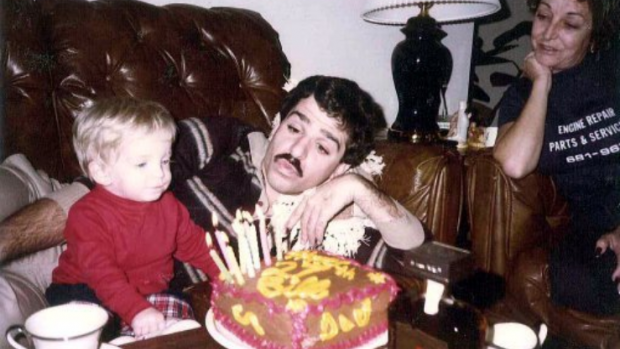“I’ve never in my life identified as ____________” he said.
When helping people who are biracial or multiracial grow in their ethnic identity, I hear this phrase over and over again. Many of us mixed people pick a side early on … or have one picked for us.
Picking a side doesn’t erase your heritage. [Click to tweet]
I’m a multiracial person and come from a mixed family. My mother’s mother is a white woman from South Carolina who married into a Spanish family when she moved to Florida with my grandfather. My father’s family comes from Cuba. Our family pictures look wild. (see the above picture)
Over the years, I’ve had the opportunity to work with many multiracial college students and missionaries. And over the years, I’ve developed a way of talking about ethnicity that is particularly helpful for them … especially if there’s one facet of their ethnic identity that’s underdeveloped.
Your ethnic identity is an inheritance. [Click to tweet]
Imagine your parents or grandparents stored up a pile of cash and precious jewels. Instead of spending them to add comfort to your life or beauty to your world, they kept them locked up in a safe deposit box. They had their reasons.
Ethnicity is a gift passed
down to us from our ancestors and given
to us by God.
Now imagine that those riches are passed on to you. You have a right to them. They’re yours. When you’re ready, you can go to the bank and open the box and see what’s inside. What’s inside may make your life easier, solve problems, bring blessing. Some of what’s inside may bring pain. But – either way – the contents of the box have been given to you.
Ethnicity is a gift. It’s passed down to us from our ancestors and it’s given to us by God. The question posed to us is “What will you do with what God’s given you?”
How to use this metaphor to help multiracial people grow
1) Use the language of gift
Mixed people often feel like they’re going to lose something when they engage the full complexity of their ethnic heritage. This can keep them from opening that lockbox.
But if ethnic identity is a gift, then opening that lockbox is an opportunity.
Talk about God’s generosity. He’s given them not just one, but multiple lines of heritage. And he loves them. He can be trusted. Just as a good parent wouldn’t give their kids rocks to eat, God’s not going to give us bad gifts.
What gift might God be giving them in their complex heritage?
2) Push them to buddy up
An inheritance can be a dangerous thing. I’ve seen people inherit large sums of money and waste them foolishly. Just because something is yours doesn’t mean you’re ready to steward it.
One of the best ways to avoid disaster when you inherit wealth is to connect with someone who’s had a similar experience. Find a guide. Find a buddy.
Just because something is yours doesn’t mean you’re
ready to steward it.
How helpful it is for multiracial people to have others who’ve gone before us! We can learn from their mistakes. When they’ve been wise, we can follow their path. And they often are willing to lead us.
Who can walk with them in this particular aspect of their ethnic identity journey?
3) Ask good questions
As a mixed person grows in their ethnic identity – particularly if they’re strengthening a soft side – your good questions can be a blessing to them. But watch out! Thoughtless or ignorant questions can be remarkably painful.
The same is true when you receive any inheritance. It’s helpful to resist the temptation to collect your riches in a pile and sit on them alone, thinking dragonish thoughts. But it’s also uncomfortable to feel like you’re under the microscope.
Here are my four questions that I like to ask:
- What are you learning about that side of your heritage?
- What are you feeling as you explore that side of your heritage?
- What is resonating with you from that side of your heritage?
- What do you think you’ll do differently today?

When the inheritance has been put to good use
I grew up deeply disconnected from my Latino roots, but not uninfluenced by them. The way I interacted with authority, communicated and read the Bible were all marked by my Latino culture. But if you had asked me, I couldn’t see it.
Opening the lockbox on that side of my heritage has had a huge effect on my relationships, my ministry and my faith.
At a recent conference, I led a team of mostly multiracial InterVarsity Staff as we helped Latino students embrace their ethnic identity as a gift from God. One of the highlights of the entire conference was hearing one of our Staff say (as I remember it), “I’ve never in my life identified as Latino. But that’s who God’s made me. He made me Latino and he made me white and he made me on purpose. And he made you on purpose too.”
Friends, what would happen if all the lockboxes were opened and all the riches God’s given were thrown into play in God’s grand kingdom work?
Read More:


